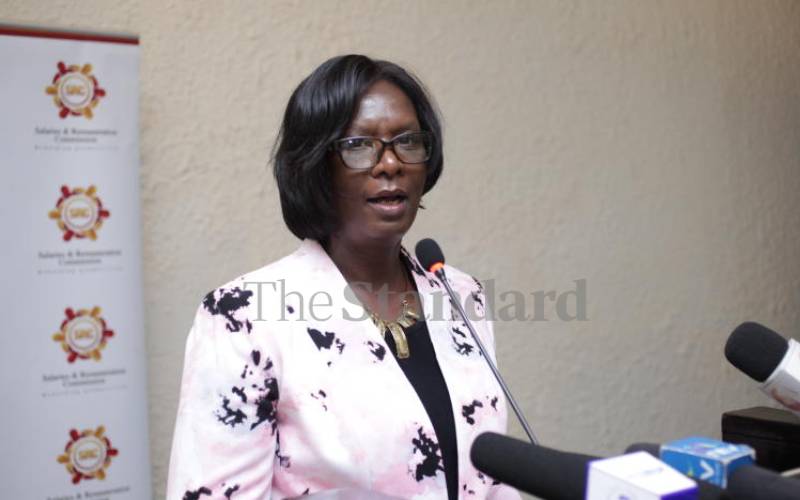×
The Standard e-Paper
Kenya’s Boldest Voice

SRC Chairperson Lyn Mengich. [Wilberforce Okwiri, Standard]
Collective bargaining is a process of negotiation between employers and a group of employees aimed at signing agreements to regulate working conditions, salaries, benefits, terms and conditions of employment among other aspects of workers’ compensation and rights.







